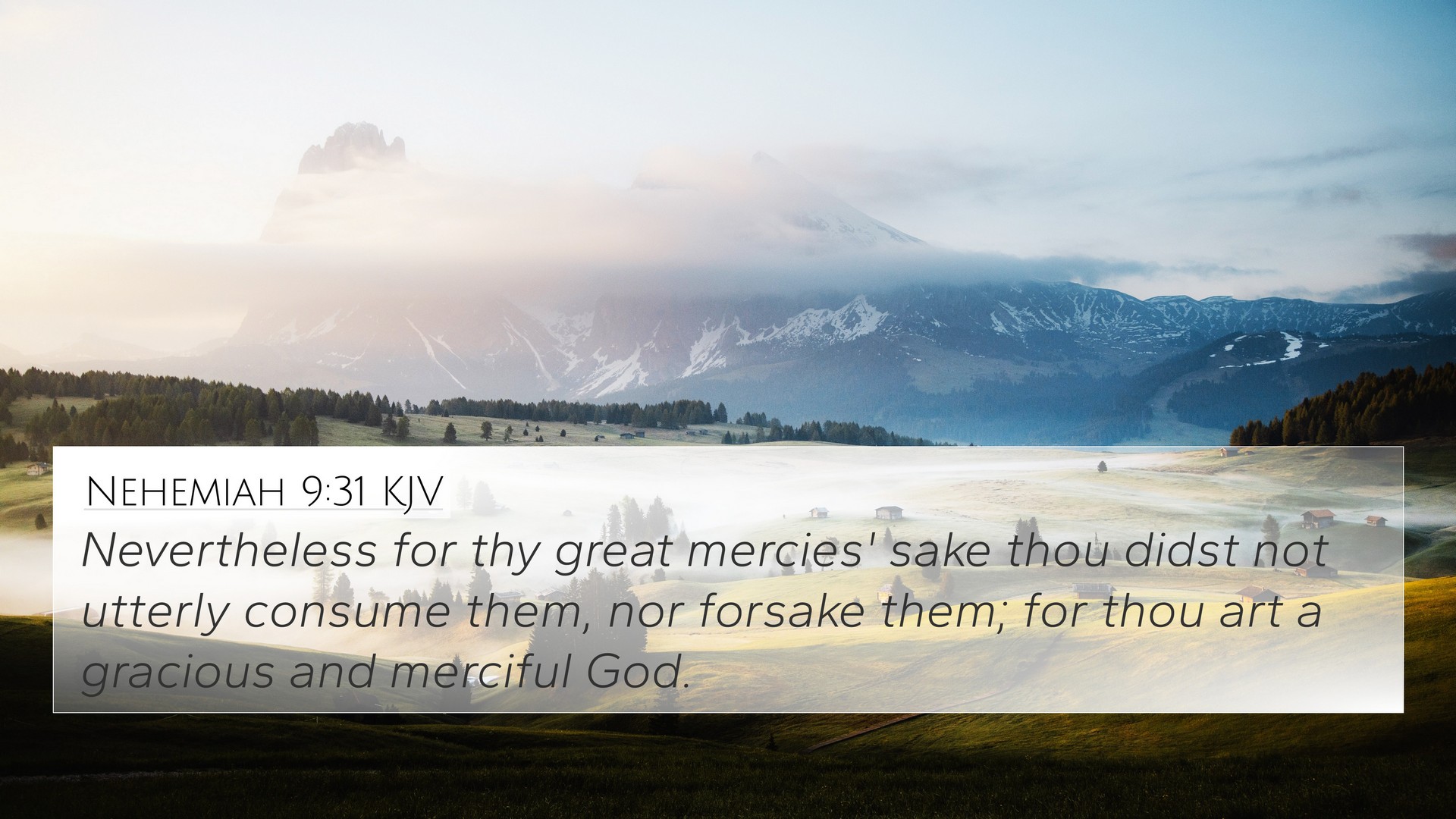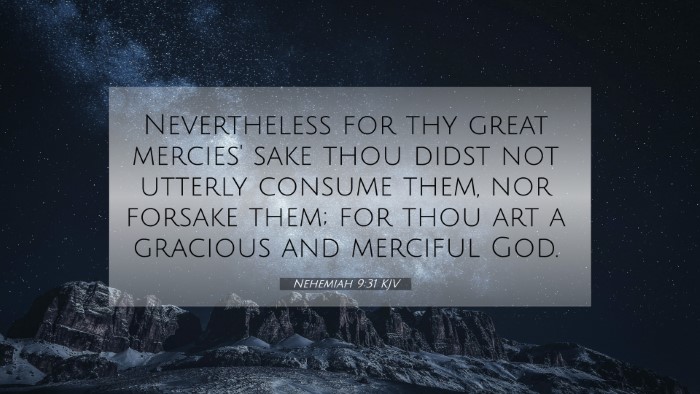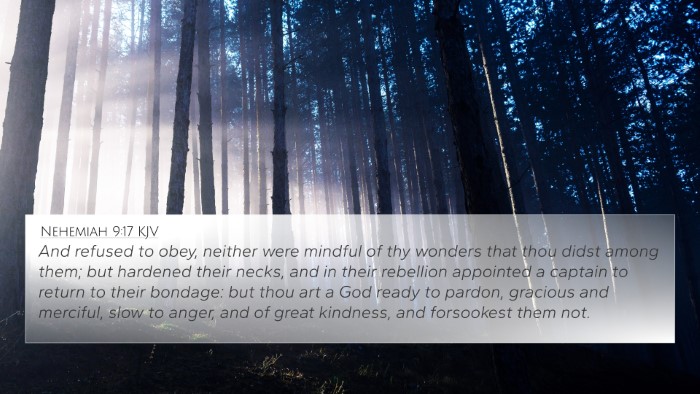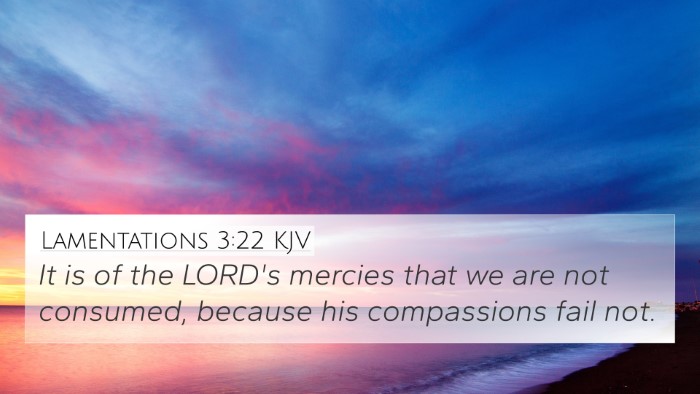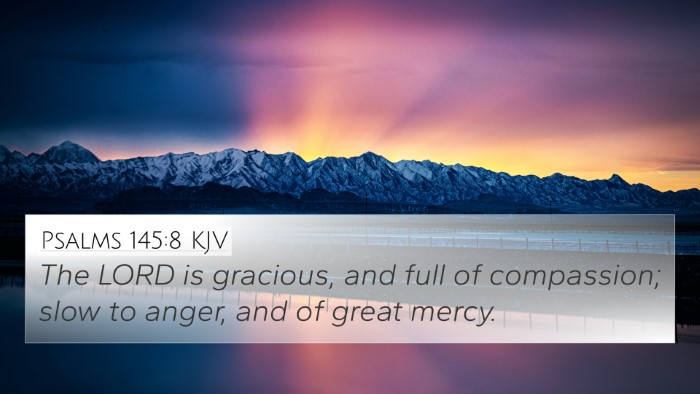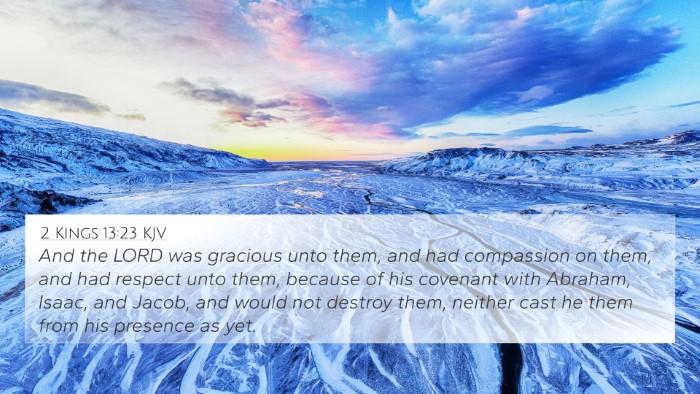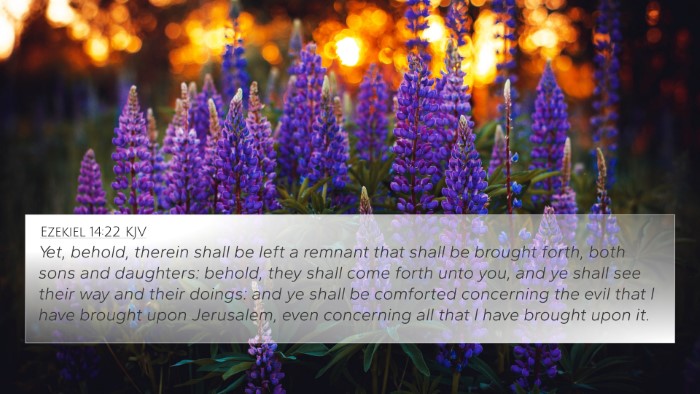Understanding Nehemiah 9:31
Verse: Nehemiah 9:31 - "Nevertheless, in Your great mercy, You did not utterly consume them nor forsake them; For You are God, gracious and merciful."
Summary of Meaning
This verse encapsulates the central theme of God's faithfulness and mercy toward His people despite their iniquities. Nehemiah acknowledges the sovereignty and lovingkindness of God. The historical context reflects on Israel's repeated disobedience and God's unyielding mercy that prevents total destruction.
Insights from Commentaries
-
Matthew Henry's Commentary
Henry emphasizes that even when the people provoked God through their sins, His mercy prevailed. Despite their rebellion, God showed restraint and patience, demonstrating His nature as gracious and merciful. This verse encourages believers to reflect on the enduring mercy they receive from God, which is a core aspect of the Covenant relationship.
-
Albert Barnes' Commentary
Barnes underscores that God's mercy is a dominant theme throughout the history of Israel. His commentary reflects on the idea that God's commitment to His people does not falter despite their faults. Barnes highlights that this verse reassures believers of God's eternal nature, providing hope even in times of judgment.
-
Adam Clarke's Commentary
Clarke points out the contrast between God's character and human failures. He notes that the phrase "did not utterly consume them" is deeply significant, showcasing the balance between justice and mercy. Clarke reminds the reader of the importance of acknowledging one’s sins while also recognizing God's offer of grace and forgiveness.
Bible Cross-References
Here are some key Bible verse cross-references that relate to Nehemiah 9:31, demonstrating inter-Biblical dialogue about God's mercy:
- Exodus 34:6-7 - God's description of Himself emphasizing being "merciful and gracious."
- Psalm 103:8 - "The Lord is merciful and gracious, slow to anger, and abounding in steadfast love."
- Lamentations 3:22-23 - "The steadfast love of the Lord never ceases; His mercies never come to an end."
- Romans 5:20 - "Where sin increased, grace abounded all the more."
- Ephesians 2:4-5 - "But God, being rich in mercy, because of the great love with which He loved us..."
- 2 Peter 3:9 - "The Lord is not slow to fulfill His promise... but is patient toward you, not wishing that any should perish."
- Micah 7:18 - "Who is a God like you, pardoning iniquity and passing over transgression for the remnant of His inheritance?"
Thematic Bible Verse Connections
This verse in Nehemiah serves as a powerful reminder of several themes throughout Scripture:
- Divine Mercy: The concept of mercy threads through both the Old and New Testament, illuminating God’s forgiveness and compassion.
- Covenant Loyalty: God's commitment to His people exemplified by His unwillingness to forsake them despite their failures.
- Repentance and Redemption: The necessity of acknowledging one's sins as a pathway to experiencing God's mercy.
Comparative Bible Verse Analysis
Conducting a comparative study involving Nehemiah 9:31 can enhance our understanding of Biblical themes:
- Practical Application: Reflecting on the balance of justice and mercy can help believers navigate their own relationships.
- Theological Implications: Analyzing God’s character as depicted in this verse against other attributes such as holiness and justice.
Cross-Referencing Biblical Texts
Tools for cross-referencing can assist in exploring the interconnection between scriptures. Engaging with a Bible concordance or Bible cross-reference guide can unveil deeper insights from these biblical passages.
Conclusion
Nehemiah 9:31 serves as a reminder of God’s enduring grace and mercy. It encourages us to explore the connections between Bible verses, enriching our understanding of scripture as we see how themes of mercy, repentance, and covenant loyalty unfold throughout the Bible.
